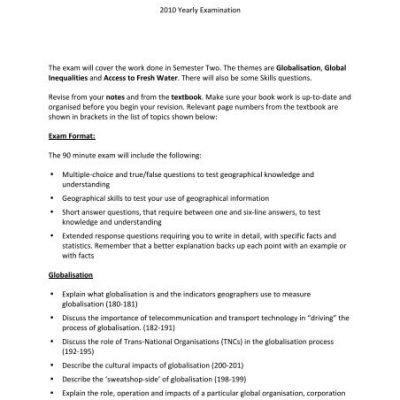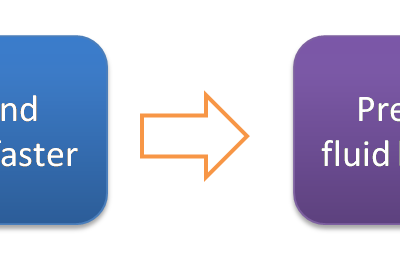Share this:
Field Work Study Notes
Field work the practical collection of geographical information about the natural physical phenomena, social establishments, peoples’ opinions and feelings, etc.
It is the art of using local ground/field for investigating geographical phenomenon or happenings. Field work is a laboratory for testing geographical facts.
Terms used in fieldwork
- Field excursion/tour/trip; this refers to an off-school campus approved and planned activity that relates to the school’s curriculum.
- Field work study; is the scientific study of the natural and social environment in which features or subjects are observed in their natural state.
- Field research; is the collection of information from the study place/field. It involves collection of information, analyzing it and making a report. This requires a lot of time and resources.
- Population; this refers to total units of interest. The units can be people, towns, shops, markets, animals, crop fields, etc. from the population a sample is always taken to represent the bigger population.
- Study problem/phenomenon; this is the geographical issue that is not known and therefore requires investigation.
- Respondent; is a person who is interviewed or give information in the field during a fieldwork study.
- Interviewer; is a person who asks questions to the respondent during data collection.
- Data; this is the information collected while in the field. This is primary or first-hand-data (data collected while in the field) and secondary data (data collected from read documents.
Phases of field work
Fieldwork has got basically three phases i.e.
- Preparation and planning
- Data collection
- Follow-up activities
- Preparation and planning
To have a successful fieldwork study, a plan should be made which involves;
- Deciding on the broad theme like fishing, farming, forestry, etc
- Selecting a particular geographical area to visit where the theme is practiced.
- Carrying out a pilot study.
- Formulating the topic of study
- Stating the objectives of the study.
- Deciding on the methods of data collection.
- Deciding on the tools and equipments to use.
- Making administrative arrangements and seeking for permission from concerned persons.
- Preparing transport, food, drinks, etc if necessary.
- Carrying out a briefing in case of a group field work study.
Formulating of a topic
A fieldwork topic is a geographical statement of what is to be investigated/studied in the field. The topic should be;
- Distinct and comprehensive with quality of clarity.
- Original and fresh on fresh geographical issues.
- Concise but covering geographical meaning i.e. on geographical topics like mining, farming, etc.
- Researchable and achievable in the available field time.
- Specific and revealing the area studied
E.g.
- A study of the relationship between relief and mixed farming on Mulungi farm in Kaliiro parish, Kaliiro sub-county in Lyantonde district.
- The effect of relief on the growth of Lambu fishing village on the western shores of L. Victoria in Bukibongo parish, Bukakata sub-county in Masaka district.
- The role played by wolfram mining in the socio-economic development of the residents of Buyaga parish, Mpumudde sub-county in Lyantonde district.
- The growth and development of Mbarara coca cola plant and its effects on the surrounding people in Makanke parish, Mbarara municipal in Mbarara district.
Inter-relationship of phenomena in field work study
This is all about how geographical features i.e. physical may influence the existence of another geographical feature i.e. human.
These physical features may include mountains, hills, plains, basins, lakes, rivers and streams, vegetation, etc. All these influence the type of human activities to develop in an area.
The human activities include farming of all types, settlement, industrial development, mining activities, transport network development, fishing, forestry, urbanization, etc.
Formulating field work objectives
An objective is an intended outcome whose attainment can be observed or measured. It is a short term goal to be achieved at the end of the fieldwork activities.
Fieldwork objectives should be;
- Specific on the stated topic, distinct, precise and definite.
- Measurable i.e. possible to determine or estimate the outcome either quantitative or qualitative.
- Achievable in the available time frame of the study.
- Realistic i.e. sensible with in practical limits.
NB. While stating objectives of the study, one should avoid phrases like to know, get interested, to see, to tour, to love, but rather use to find out, to discover, to assess, to examine, etc
Given a topic: The effect of relief on the growth of Lambu fishing village on the north western shores of L. Victoria in Bukibongo parish, Bukakata sub-county in Masaka district.
Objective may include;
- To find out the location and historical back ground of Lambu fishing village.
- To discover the landscape covered by lambu fishing village.
- To find out the land uses at Lambu fishing village.
- To find out the types of fish, methods of fishing, preservation and marketing of fish at Lambu fishing village.
- To assess the benefits of fishing at Lambu fishing village to the surrounding areas.
- To find out the problems facing the Lambu fishing village and how they are being solved.
- To find out the future prospects for Lambu fishing village.
- Data collection
This is the second phrase of fieldwork, it involves collecting and recording of data on the set topic and objectives. Here methods/techniques are used to collect information which include;
- Observation method
- Interview method
- Measurement method
- Pacing method
- Sampling method
- Recording method/documentation method
- Questionnaire method
- Map orientation method
- Literature review
- Sketching method
- Observation method this is a method of data collection which involves the use of naked eyes to see geographical features in their natural state.
Advantages of observation
- It approaches reality in its natural environment and obtains first hand information.
- It allows collection of a wide range of information.
- It offers data even when respondents are either un able or un willing to give information.
- It is less complicated and less time consuming compared to other methods.
- It isn’t affected by language barrier.
- It is cheaper and sometimes cost free.
Disadvantage
- It fails to gather information about the past like historical events.
- It fails to study a person’s attitude and opinions.
- It covers a small sample which makes it inappropriate for making generalizations about a bigger population.
- The effect of interaction of the phenomena may not easily be got by mere observation
- Some information such as numerical data cannot be obtained like incomes, number of workers, etc.
- In case of difficulty in gaining entry in an area of security concerns, no data will be obtained by observation method.
- Interview method; this involves asking of questions by an interviewer to the respondent who answers them there and then in a face-to-face conversation. Interview can be informal (oral questions) or formal (structure specific questions for the respondent).
Advantages of interview
- It is helpful in a situation where it is impossible to observe geographical phenomena directly.
- It becomes easy to obtain historical and statistical information about the phenomenon under study.
- It enables the collection of data about a person’s feelings, attitude and opinions.
- It obtains more and relevant information.
- The interview method can facilitate development of cordial relationship between the interviewer and respondent.
Disadvantage of interview
- It is costly and time consuming in case of making appointments, travel cost, etc.
- The respondent may decide to be hostile and give false information.
- It is affected by language barrier and the respondent may speak too fast to record the information.
- Suspicions may develop incase of research on incomes, prostitution, slums and respondents give false information.
- Questionnaire method; this is the method of data collection which involves writing down questions and send them to the respondent(s) for answering who after send them back to the researcher.
Advantages of questionnaire method
- Relevant information is likely to be obtained since the respondent is given ample time to fill-in the questionnaire.
- It minimizes on bias since many respondents are used.
- It becomes useful in a situation where there is less time and money to organize a fieldwork study
- It tends to be a consistent and uniform way of collecting data thus no variation.
Disadvantage
- Sometimes different respondents interpret questions differently hence give varying answers.
- It restricts the number of respondents since mailed questionnaires are used only for literate people.
- Sometimes the return rate of questionnaires is low and some may not be returned to the researcher.
- Many questions in the questionnaire may not be answered which hinder the research carried out.
- It becomes costly especially when many questionnaires have to be printed and posted.
- It is time consuming in case the respondents delay to return the questionnaires.
- Measurements this involves determining the size, height, distance, weight, value, quantity of features while in the field. Here tools like weighing scale, tape measure, meter ruler, etc are used.
Advantages of measurement method
- First-hand information is obtained.
- Clear information is obtained without any bias.
Disadvantages
- The method is tiresome when being used in the field.
- The absence of relevant measuring equipments leads to biased information
- It requires a lot of techniques which may be limited to the researcher.
- Sampling; this is the method of data collection which involves the use of part of a whole to represent the whole phenomenon.
- First-hand information is obtained.
- Clear information is obtained without any bias.
Disadvantages
- There is bias on who and what to sample and this can lead to obtaining wrong information.
- There is likely to be a problem of limited tools for carrying out some samples like on soil samples.
- There is likely to be a problem of limited representative samples.
- Information got by sampling may not be the actual information of ground.
- Map orientation; this is the determination of the position of a particular place or any geographical phenomenon in relation to compass direction. Here a map or written information can be used to identify the feature on ground.
- Pacing; this is the method used to determine the distance of a specific geographical feature using strides. Here one can determine the distance from the main road to the factory.
- Literature review; this is where written geographical information is visited to gather information about the topic of study. Such data can be got from text books, news papers, magazines, etc.
- Recording method; this is the noting down of information collected using other methods while in the field. Here pen, pencil, note books are used.
- Sketching method; this is a method of data collection which involves the drawing of maps, panoramas, cross-sections, etc, while in the field.
- Follow-up or post field work activities
These are activities done immediately after a field work study. It is done in class and it involves;
- Interpreting of data into meaningful geographical information.
- Polishing and improving on diagrams and maps drawn in the field.
- Arranging and analyzing the raw data.
- Drawing meaningful conclusions following the objectives of study.
- Making recommendations from the data collected.
- Writing a report of the findings based on the objectives of the study.
Nb. Arrange a field work study and answer the following questions.
- (i) State the topic of study
(ii) Outline the objectives of the study.
- Describe the methods/techniques you used to collect data. Or how did you carryout the fieldwork.
- Explain the problems you faced during the collection of data.
- How was your fieldwork geographical? Or what were your fieldwork findings? Or explain the relationship between physical and human aspects of the area of study. Or how did the fieldwork help you to understand the geography of the area? Or how was your fieldwork realistic?
- What were your follow up activities or post fieldwork activities.
- Drw a cross section/transect or a sketch map or a panorama/landscape sketch showing physical and human features.
- Explain the preparations/pre-fieldwork activities you carriedout.
- Explain the effect of the land use activities on the environment in the area of study.
- What were the recommendations you made after the study.
- Which conclusions did you make after the study?
- Explain the skills you gained from the field work study.





